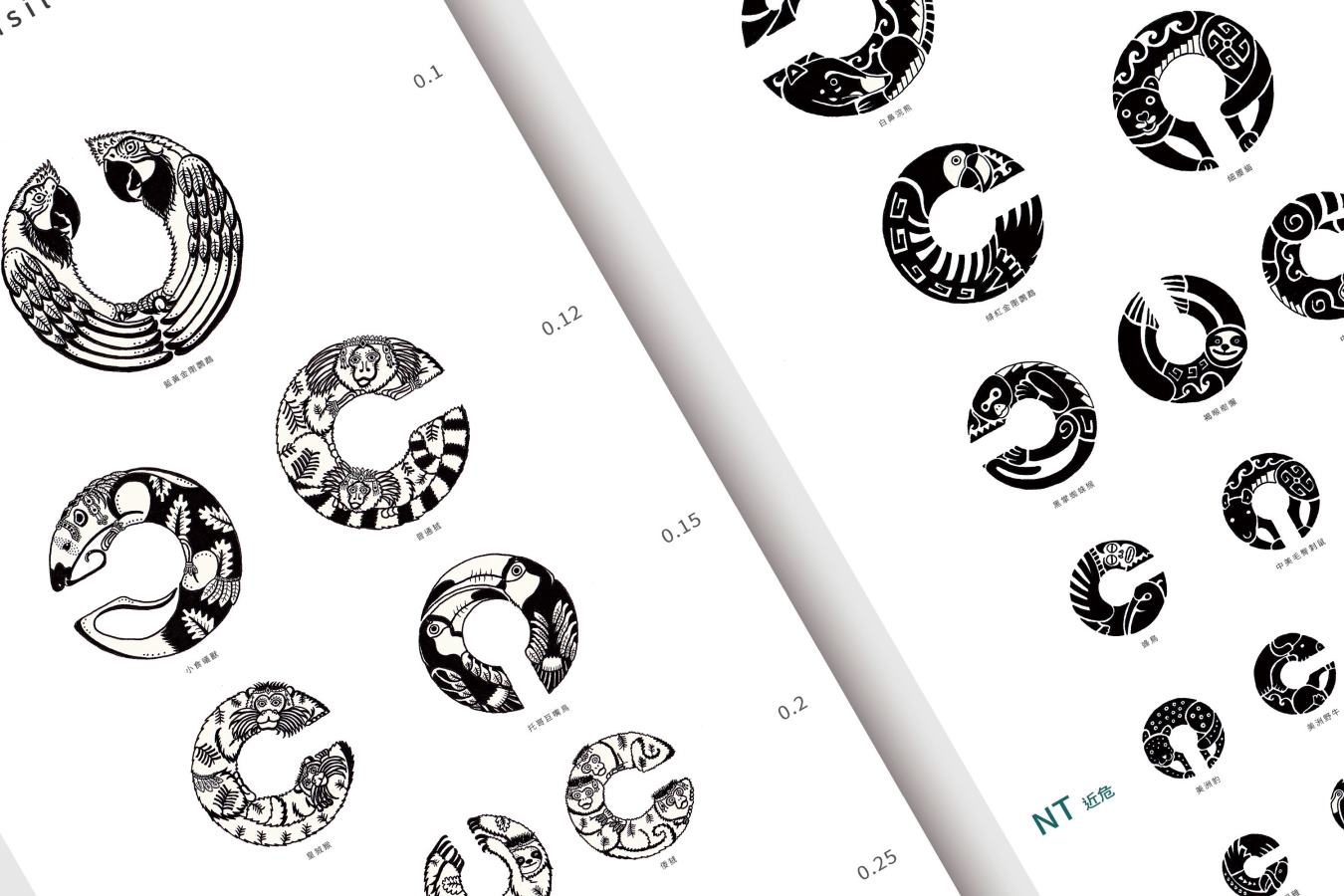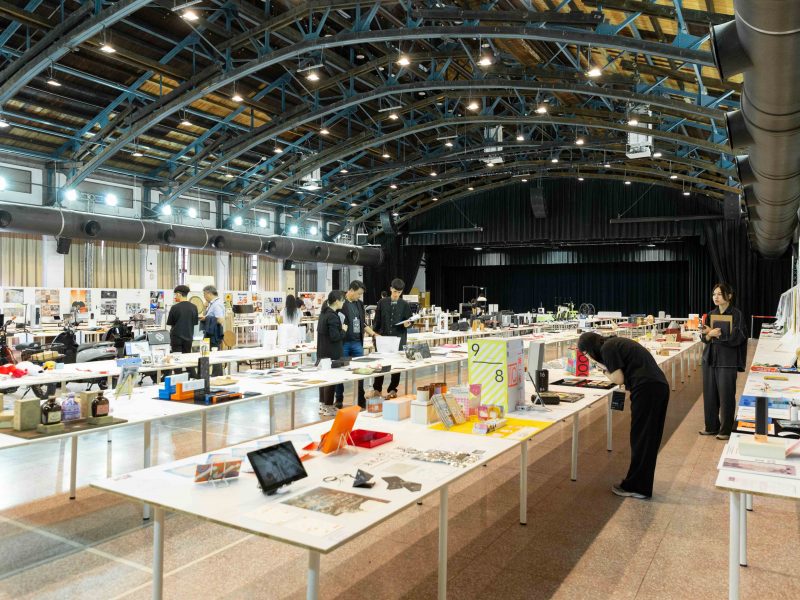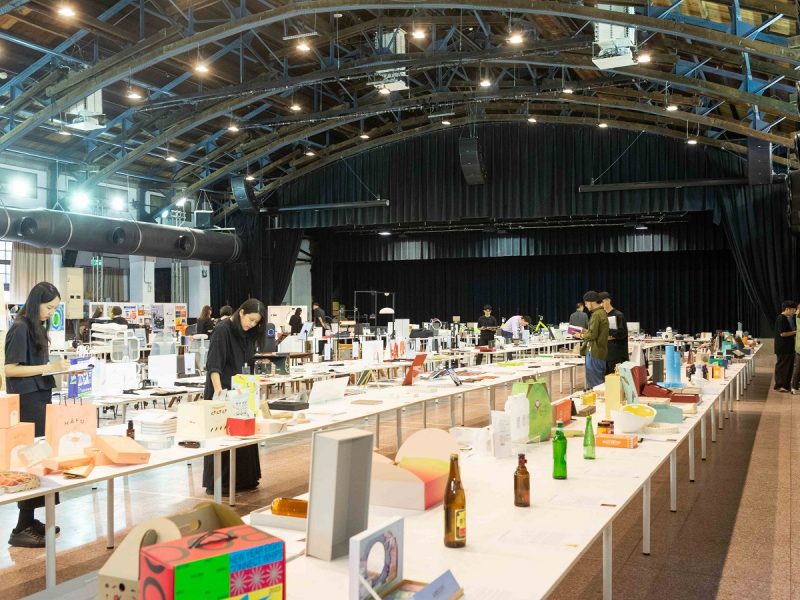▲ Under 1.0
Wan Xiang-Xin, student at National Taiwan University of Arts, Taiwan
The GPCDA 2018 Call for Entries opened in March and so far it has received entries from designers in France, Hungary, Poland, UK, USA, Iran, Hong Kong, Indonesia, Malaysia, Singapore, South Korea, Taiwan, and China. Here is a first look at six entrants, vying for the opportunity to bring their design concepts to life. The first half of the selection is highlighted for the designers’ attention to problem-solving and social impact, while the second half attaches importance to our understanding of the natural world and environmental impact.
Social Impact
Here are three design concepts that tackle problems in our present day-to-day lives, as well as as the everyday lives of people in the future.
Floating Boat Hydroponics House was inspired by the designers’ observation of local, bamboo-made buoyancy carriers. Their vision is to build a personal ark to overcome the issue of rising sea levels and widespread flooding in the near future. The main axis of the design is symbiotic, combining fish and vegetables in a holistic, hydroponic system that solves the problem of food shortage.

▲ Floating Boat Hydroponics House
Lin Jhe-Wei and Tang Jui-Feng, students at National Taiwan University of Science and Technology, Taiwan

▲ Laser projection warning sign
Dante Wu and Liang Yan-Hong, Product Designers at LM Design, China
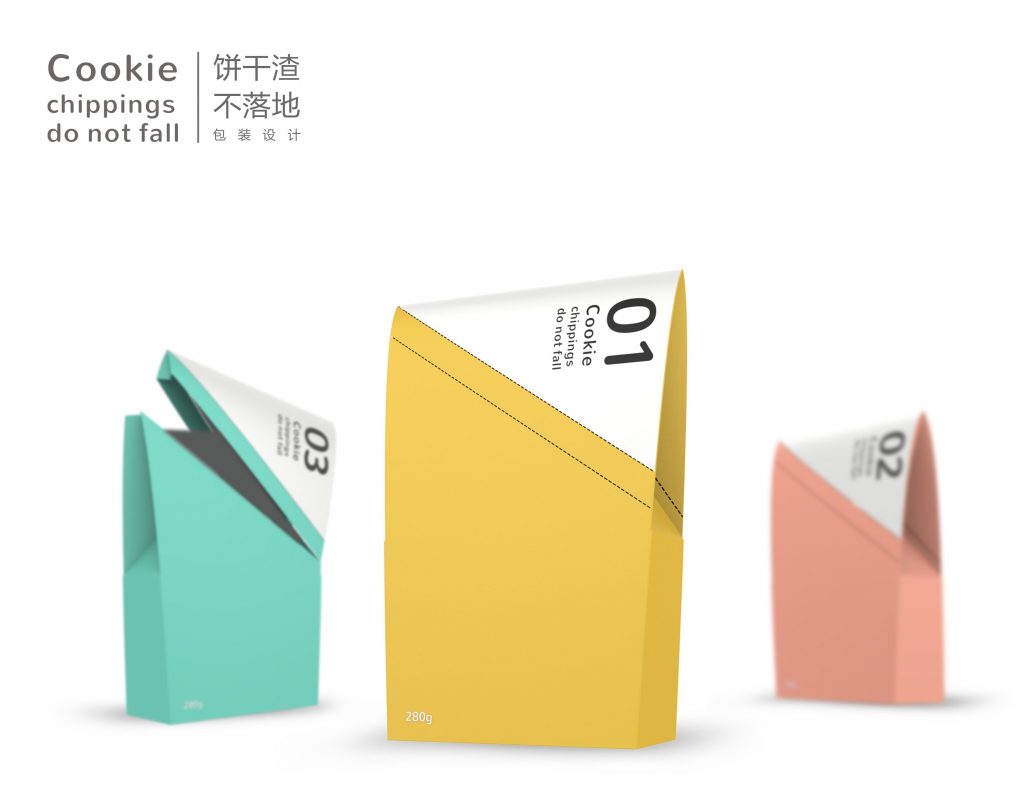
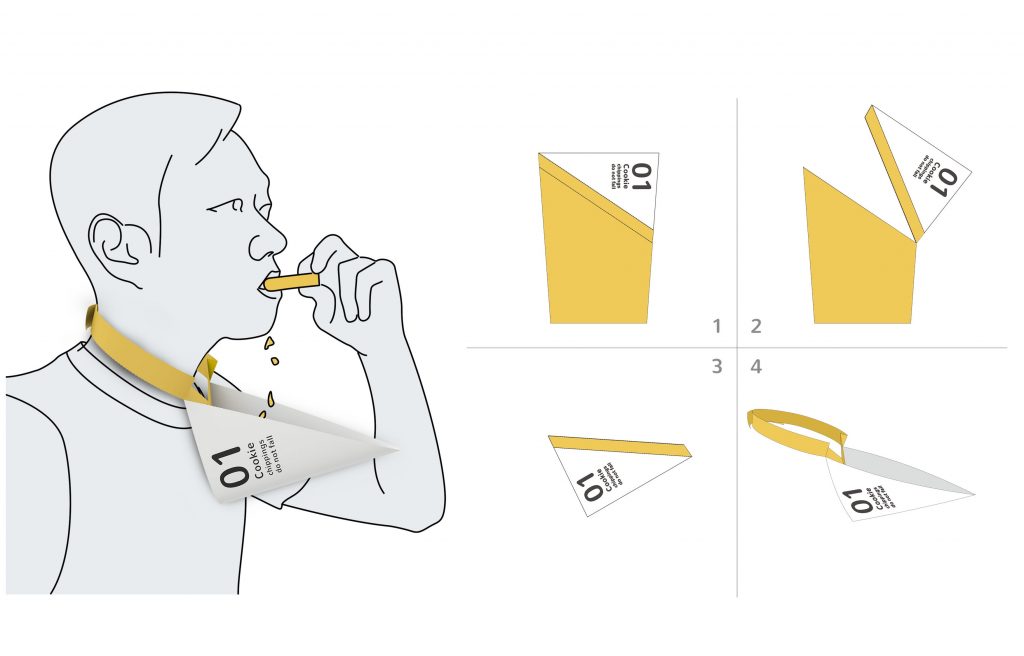
▲ Cookie chippings do not fall
Min-yi Wu and Huan Yu, Design Directors at Hanov Design, China
Environmental Impact
According to the United Nations, more than 90 percent of the world’s population will live in cities by the year 2050. These three design concepts negotiate the growing distance between humanity and nature, while raising awareness about environmental degradation.
The SCOBY material is cultured using an extract from agricultural waste. The material is a membrane that prolongs the durability of a product and can be eaten together with its contents, or recycled as compost. The designer’s mission is to innovate sustainable packaging that can enrich our environment.
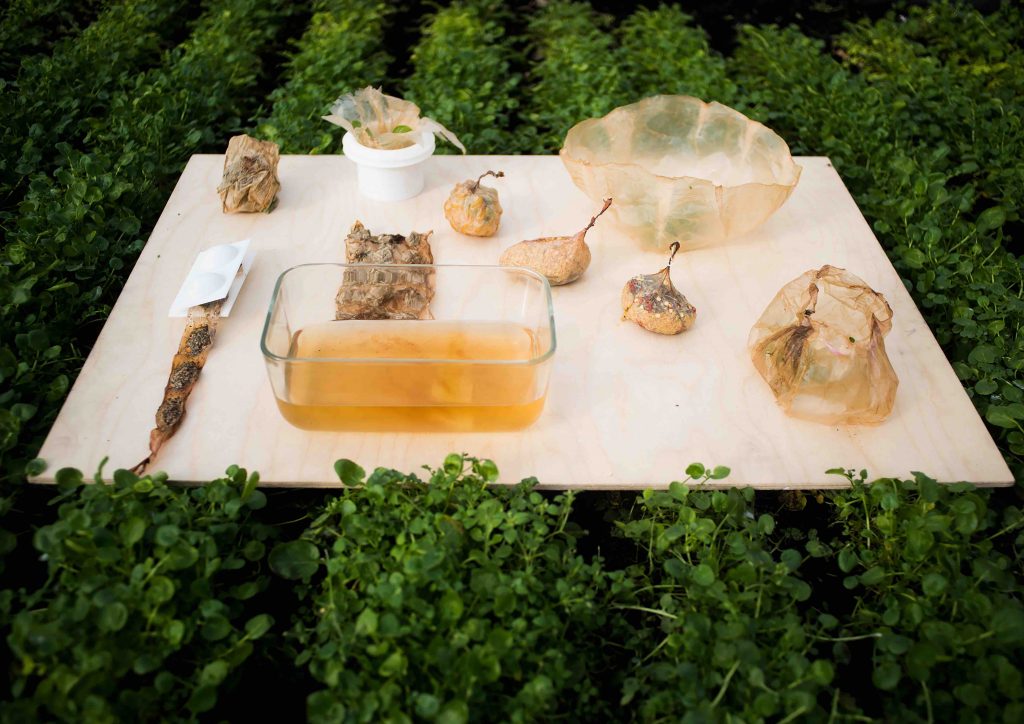
▲ SCOBY living packages
Roza Janusz, student at School of Form, Poznan, Poland
Making use of the properties of plants, soils, and stones to create a set of painting materials, Rewild teaches children to enjoy art and nature. The designers wish to bring a small piece of nature into urban childhood, and reconnect children with Mother Nature. They believe that the depletion of our planet’s natural resources, along with the alienation between people and nature, has resulted from a deficiency in our education.
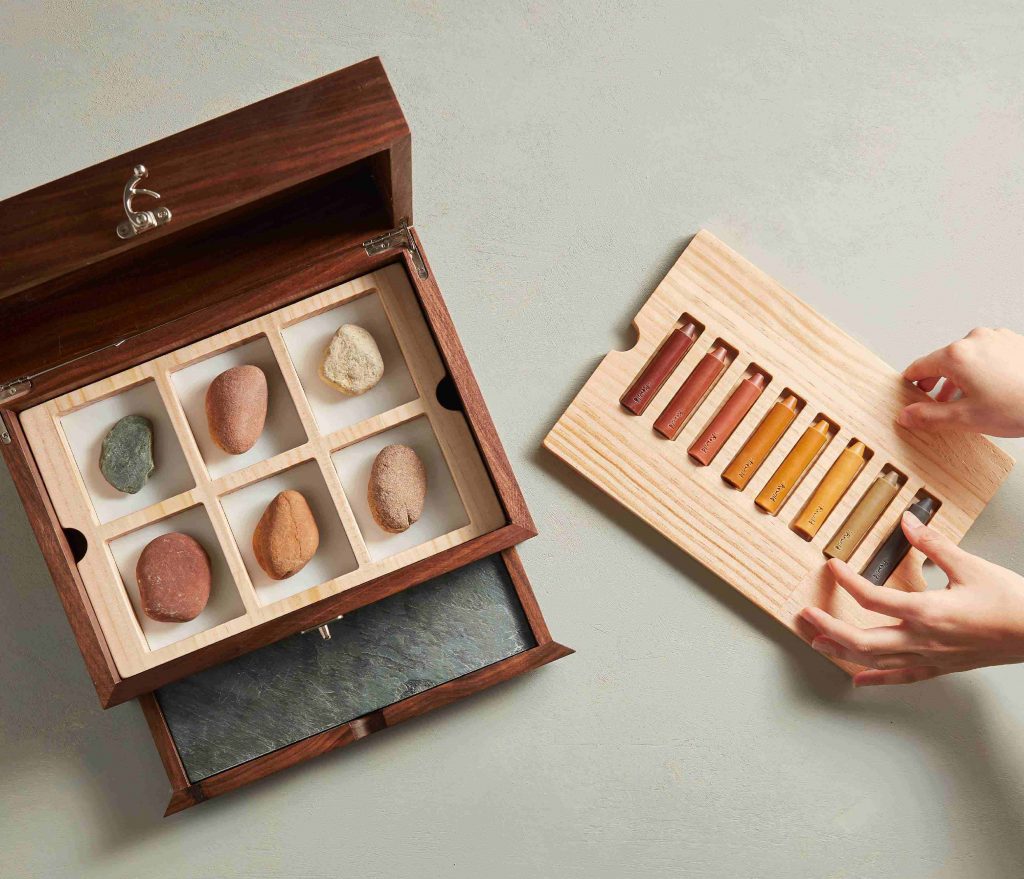
▲ Rewild
Kuo Jhih-Yu, Chen Yi-Jung, Kuo Ya-Chun, and Lai Yu-Qi, students at Ming Chuan University, Taiwan
Preliminary Jury
The jury for the preliminary judging stage is organized according to the four categories; Product Design, Visual Communication Design, Packaging Design, and Spatial Design. The Product Design jury features Mark Stocker, Managing Director of DDG branding agency, and Pili Wu of PiliWu-Design Studio. The Visual Communication Design jury features Keng-Ming Liu, Founder of Bito Studio. Follow this link to see the full jury list.
Call for Entries
Entry is free-of-charge, and the deadline is June 21 at 5pm (GMT+8). Seize the moment and submit your design concepts! Products and projects entered into the GPCDA must not be available on the market within the year of the award. There is no restriction on the nationality or occupation of entrants, students and professionals are all welcome to enter.
The four categories are Product Design, Visual Communication Design, Packaging Design, and Spatial Design. There is no restriction on the number of entries an individual can make. The judging procedure begins from Preliminary Selection in July, Secondary Selection in August, and Final Selection in September. The Design Mark winners will be announced at the end of September, and Best Design winners at the end of November.
For more information, please visit the official Golden Pin Design Award website: goldenpin.org.tw/en/pgpnyg2.asp
About the Golden Pin Design Award Group
The annual Golden Pin Design Award is the longest-running international design award that celebrates products or projects expressly created for and within huaren (Chinese-speaking) communities, offering entrants an unprecedented opportunity to prove their prowess in the world’s largest market.
The Golden Pin Award Group is comprised of two international awards — the Golden Pin Design Award, the Golden Pin Concept Design Award — and the Young Pin Design Award for students in Taiwan. The Golden Pin Design Award Group is executed by the Taiwan Design Center and organized by the Industrial Development Bureau, Ministry of Economic Affairs. The Ministry of Economic Affairs acts in an advisory capacity.

